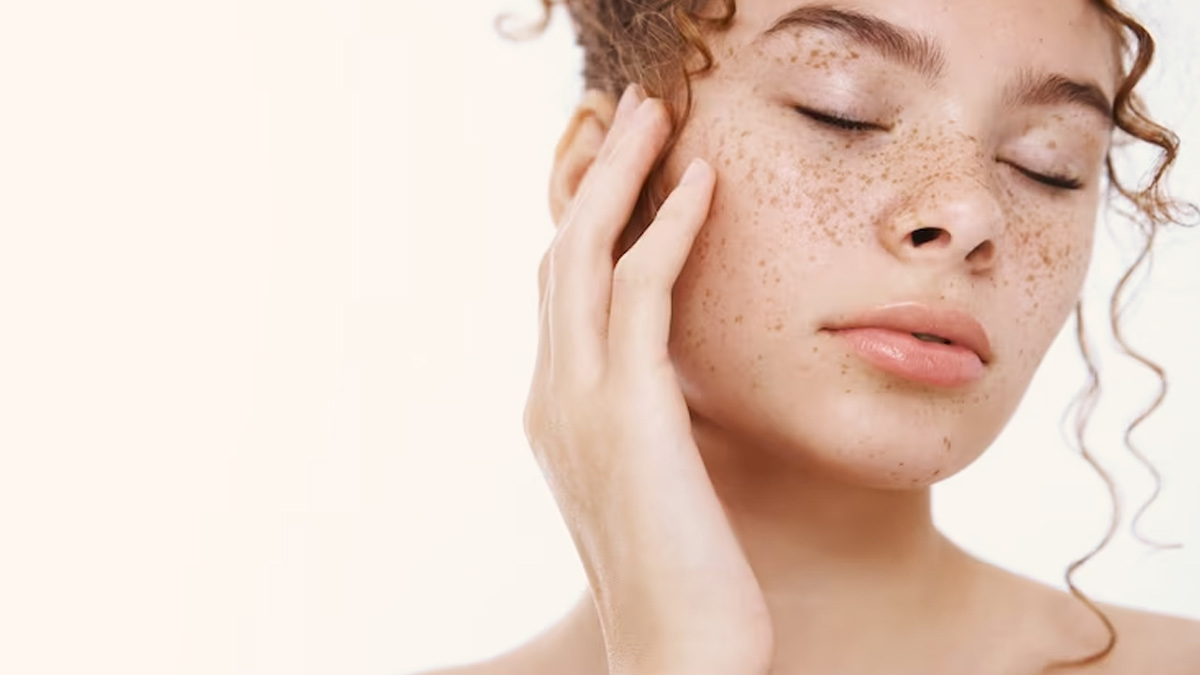
Hyperpigmentation is a common skin condition that is caused by an overproduction of melanin, which is the pigment that gives skin its natural colour. It can appear as dark patches on the skin. It is common during summer, as exposure to ultraviolet light from the sun increases. These UV rays can trigger more production of melanin and cause areas of the skin to become darker.
Table of Content:-
It is more common in people with darker skin tones, but it can affect anyone. It is most likely to occur in areas of the skin that are exposed to the sun, such as the face, neck, chest, arms, and hands.
What Causes Hyperpigmentation
According to Dr Vinay Singh, Senior Consultant, Dermatology, Paras Hospitals, Gurugram, hyperpigmentation darkens the skin by at least two tones, enough to be visibly unpleasant. “Indian skin is prone to hyperpigmentation. it is related to a deficiency of vitamins A, B12, and other essential elements,” said Dr Singh.
Common symptoms of hyperpigmentation include:
- Dark spots
- Patches
- Splotches on the skin
- Discolouration
- Uneven skin tone
Also read: These 5 Amazing DIY Face Masks Can Help In Getting Rid Of Dark Spots; Check Them Out
How To Prevent Hyperpigmentation
Sunscreen is essential for protecting the skin from sun damage and should be applied regularly, even on cloudy days. Wearing protective clothes, such as long-sleeved shirts, can also help protect the skin from UV rays. Additionally, limiting time spent in direct sunlight can reduce the risk of hyperpigmentation. As per Dr Singh, Indian skin frequently lacks vitamins A and B12. A deficiency of both these vitamins can cause hyperpigmentation, so it is important to take care of your diet.

Dr. Anjali Phatak, Director Nutripulse and Senior Clinical Nutritionist, Nutripulse, Jaipur the suggested daily dose of vitamin B-12 for healthy persons is 2.6 micrograms.
As per Dr Anjali chicken and eggs are the best source of vitamin B12, while mushrooms, chickpeas and green leafy vegetables are the vegetarian sources high in Vitamin B12.
According to Dr. K. Swaroop, Dermatologist in AIIMS Hospital, New Delhi, Hyperpigmentation can be avoided by using creams containing azelaic acid, alpha arbutin, licorice root, vitamin C, retinol and Kojic acid.

Dermatologists may suggest over-the-counter creams, lotions, and serums which can help reduce the appearance of dark spots and even out skin tone. Additionally, certain medical treatments, such as laser therapy, chemical peels, and microdermabrasion, can be helpful to reduce the appearance of hyperpigmentation.
Your doctor may prescribe a topical treatment for excessive pigmentation. Numerous over-the-counter drugs are available, but do not use them without first speaking with a doctor.
Also watch this video
How we keep this article up to date:
We work with experts and keep a close eye on the latest in health and wellness. Whenever there is a new research or helpful information, we update our articles with accurate and useful advice.
Current Version